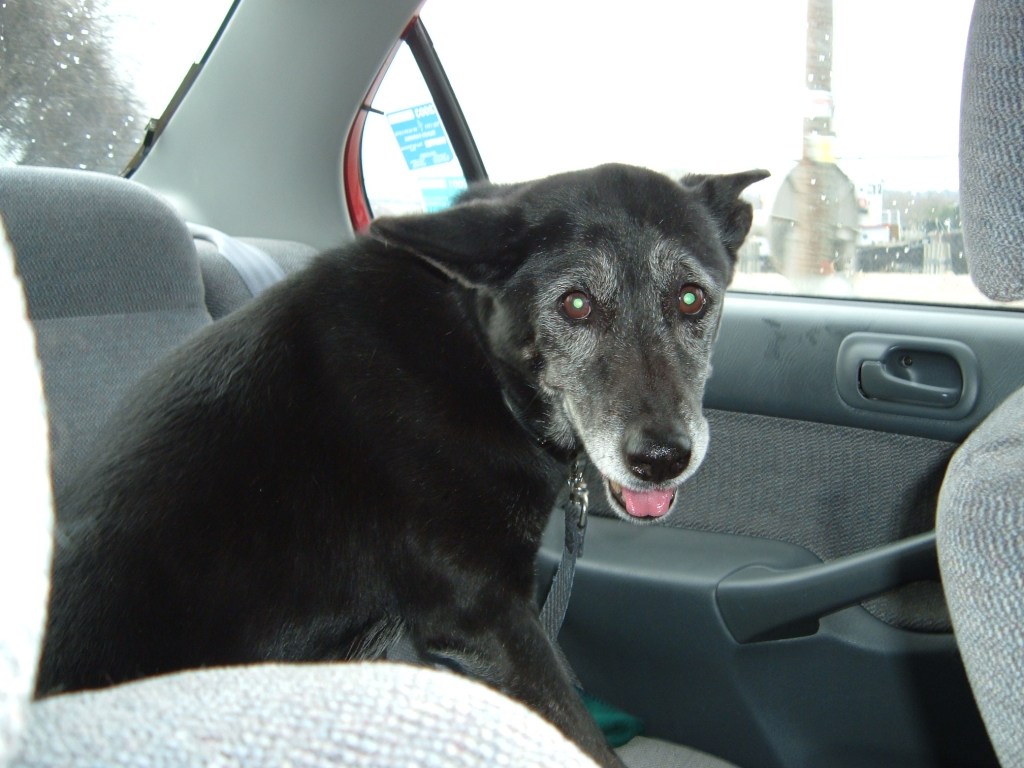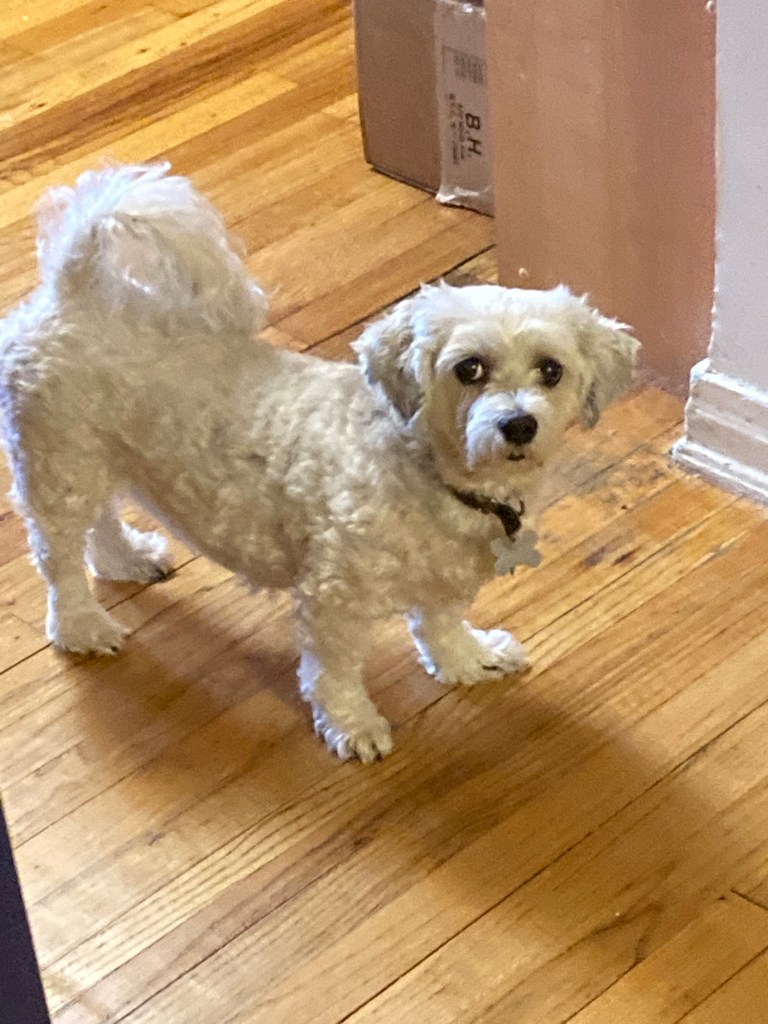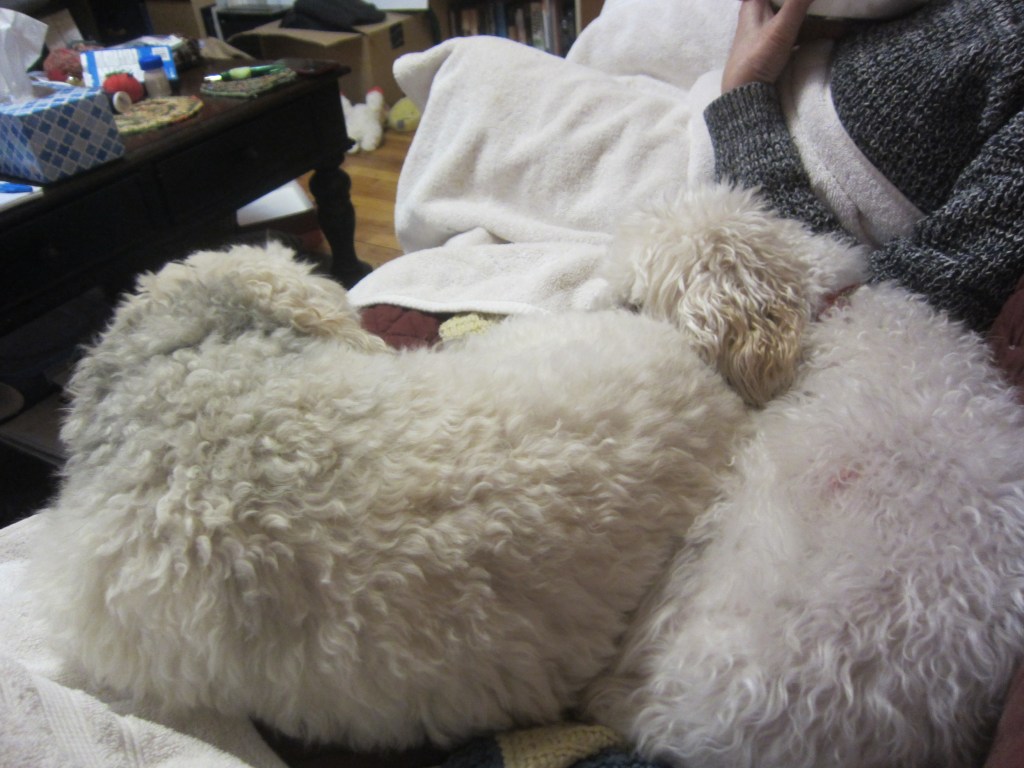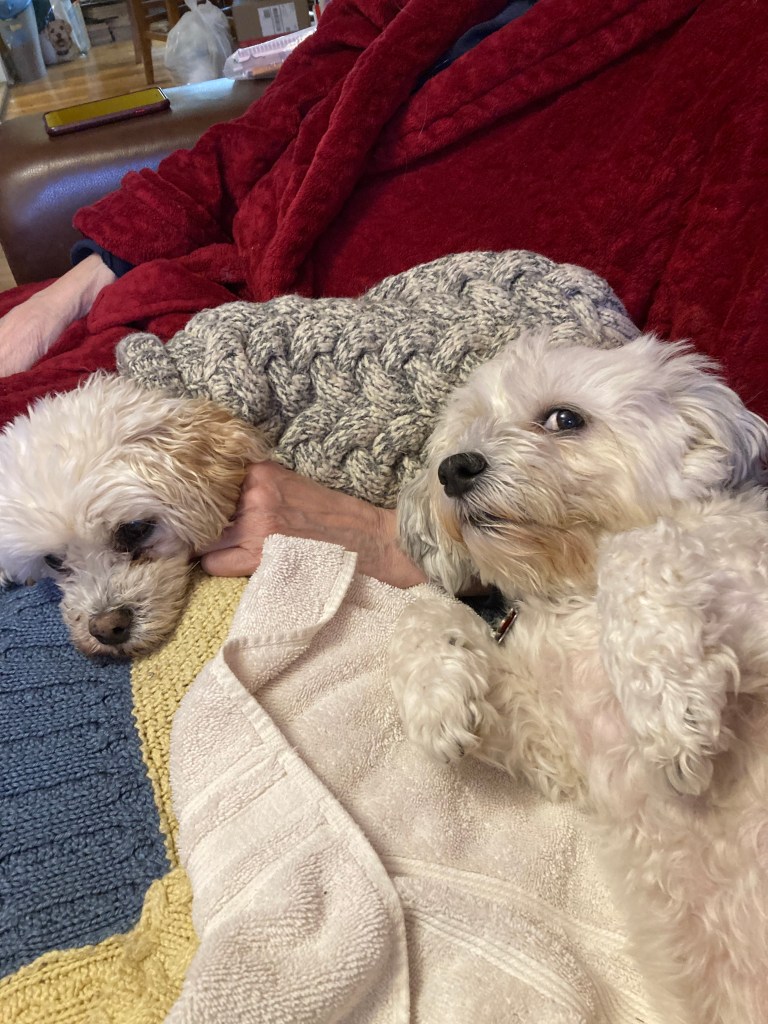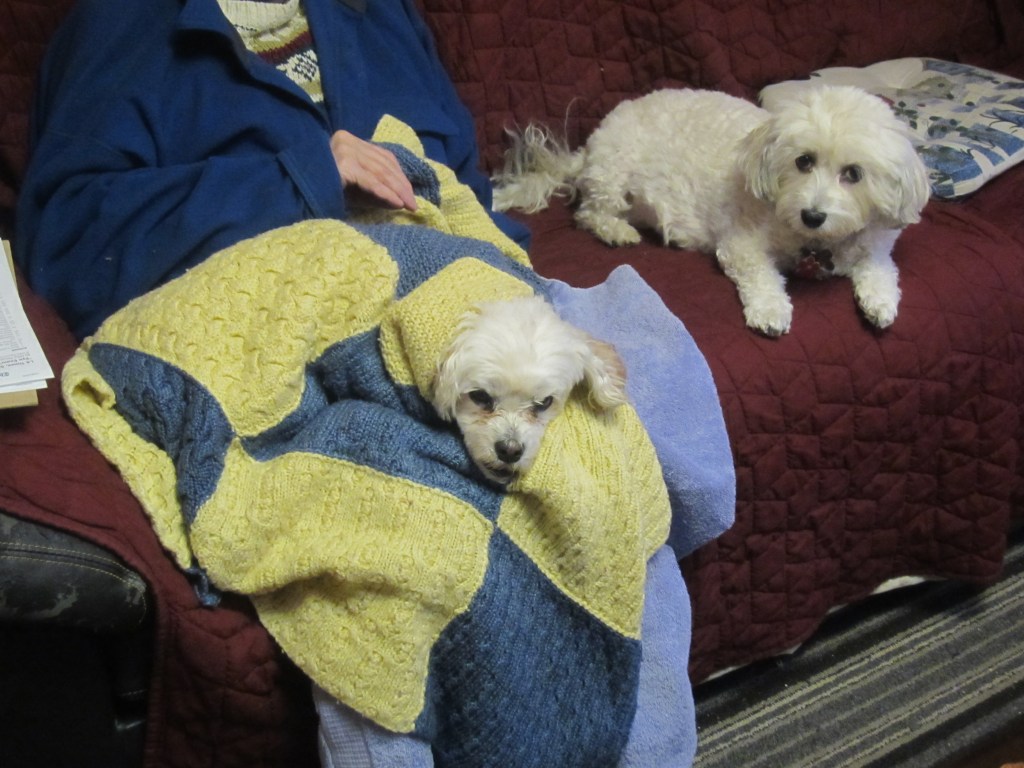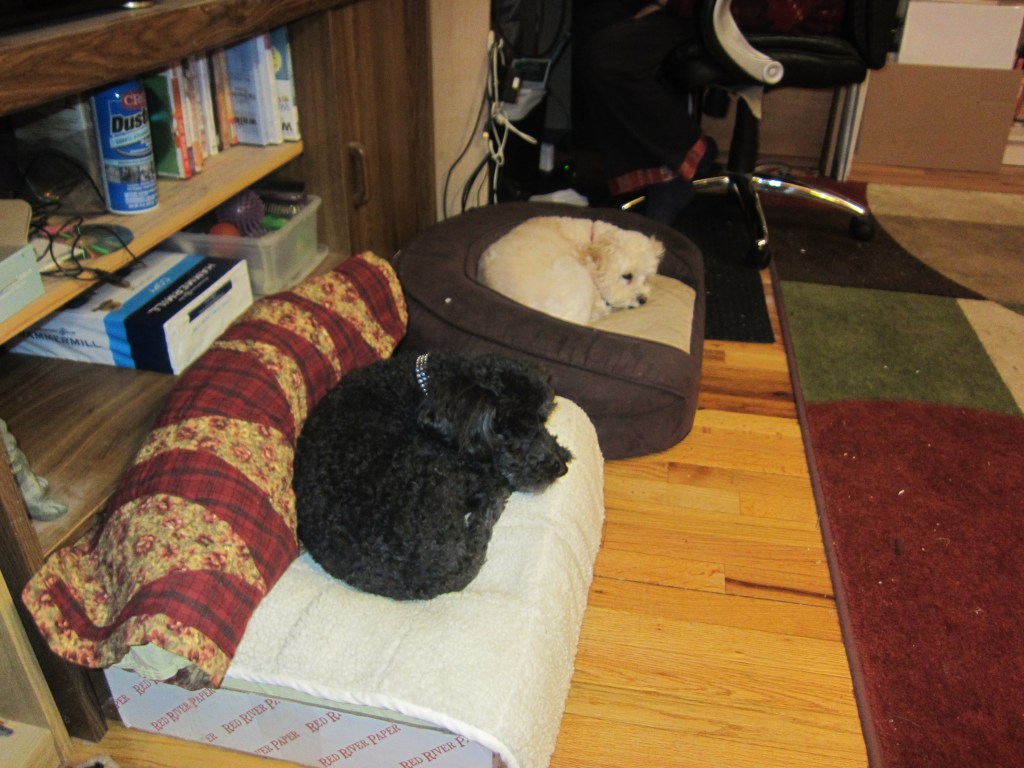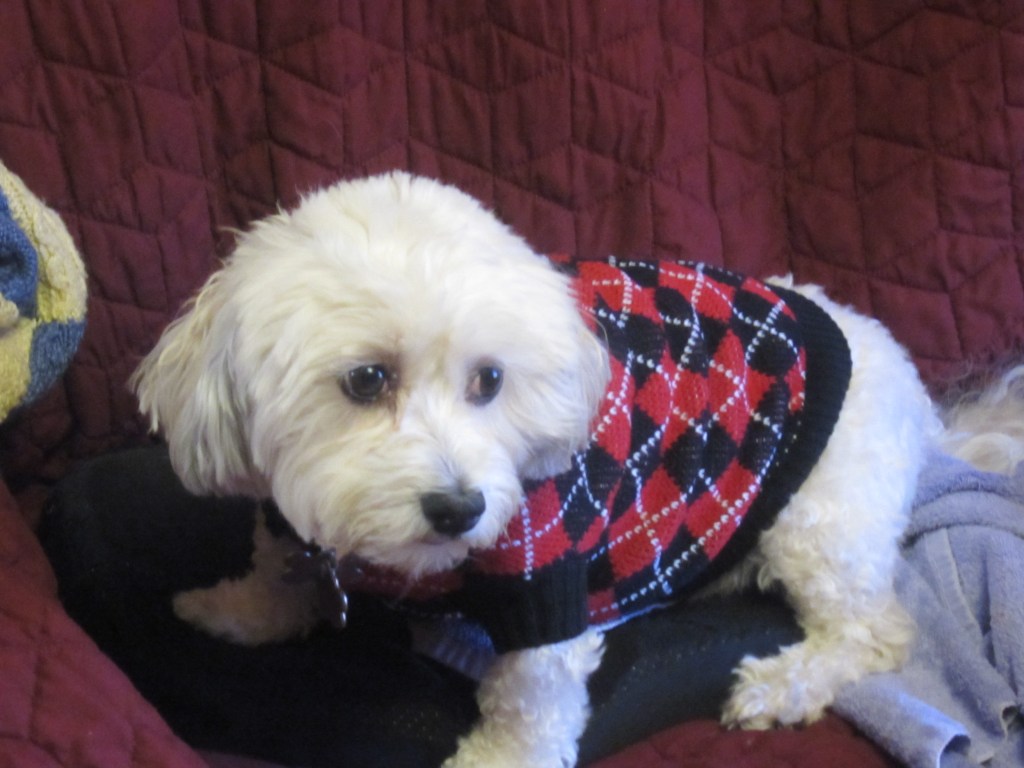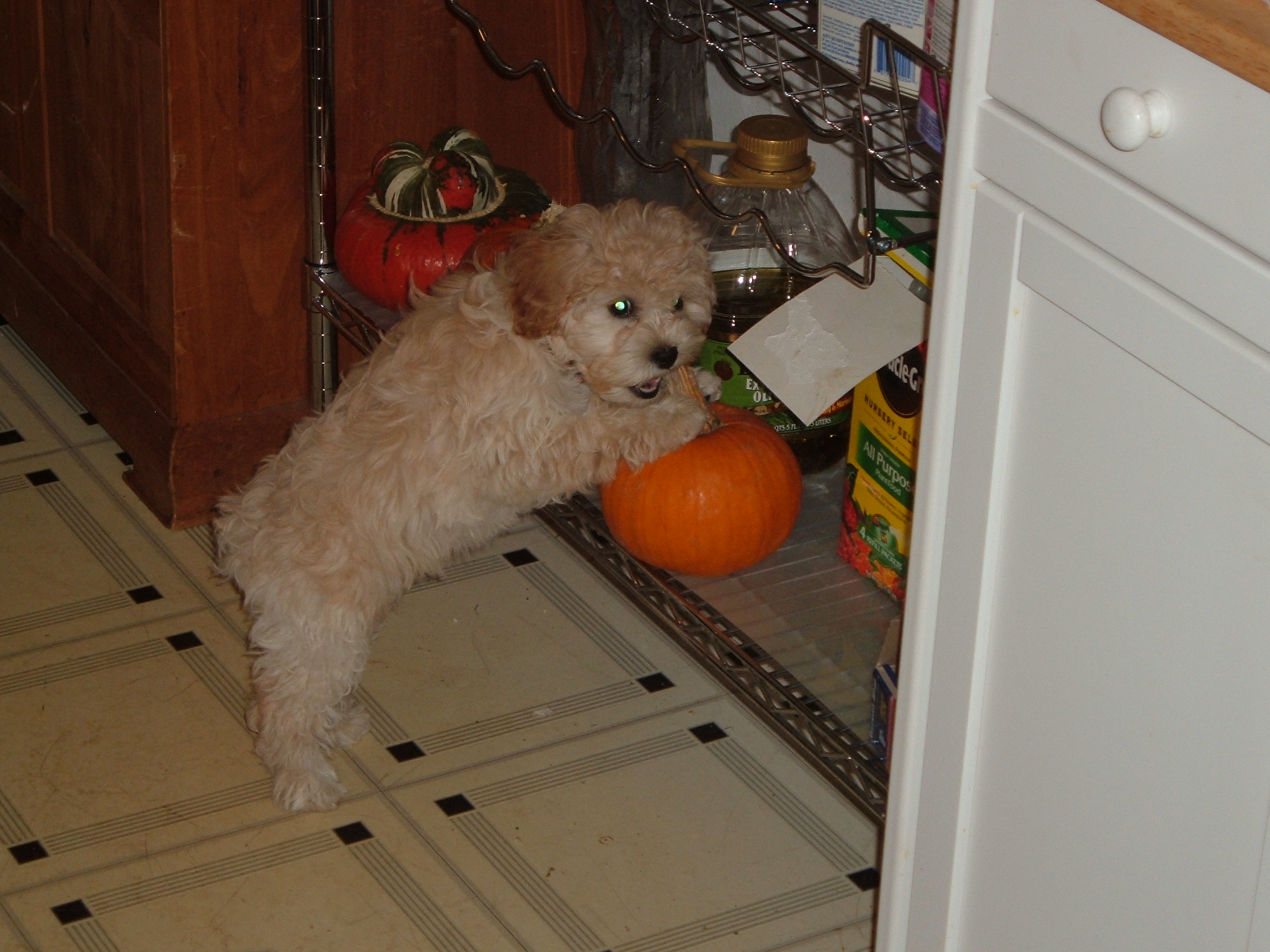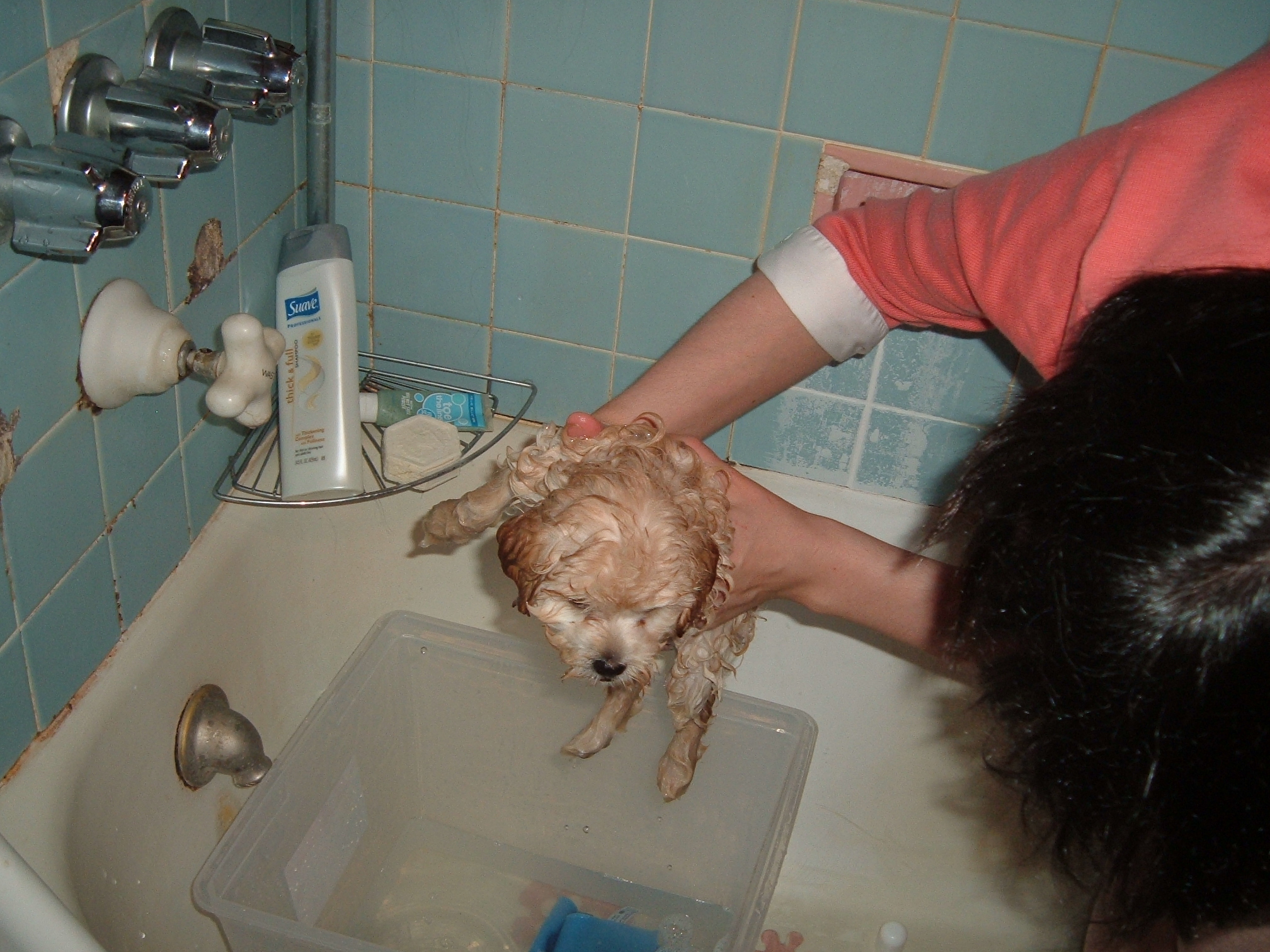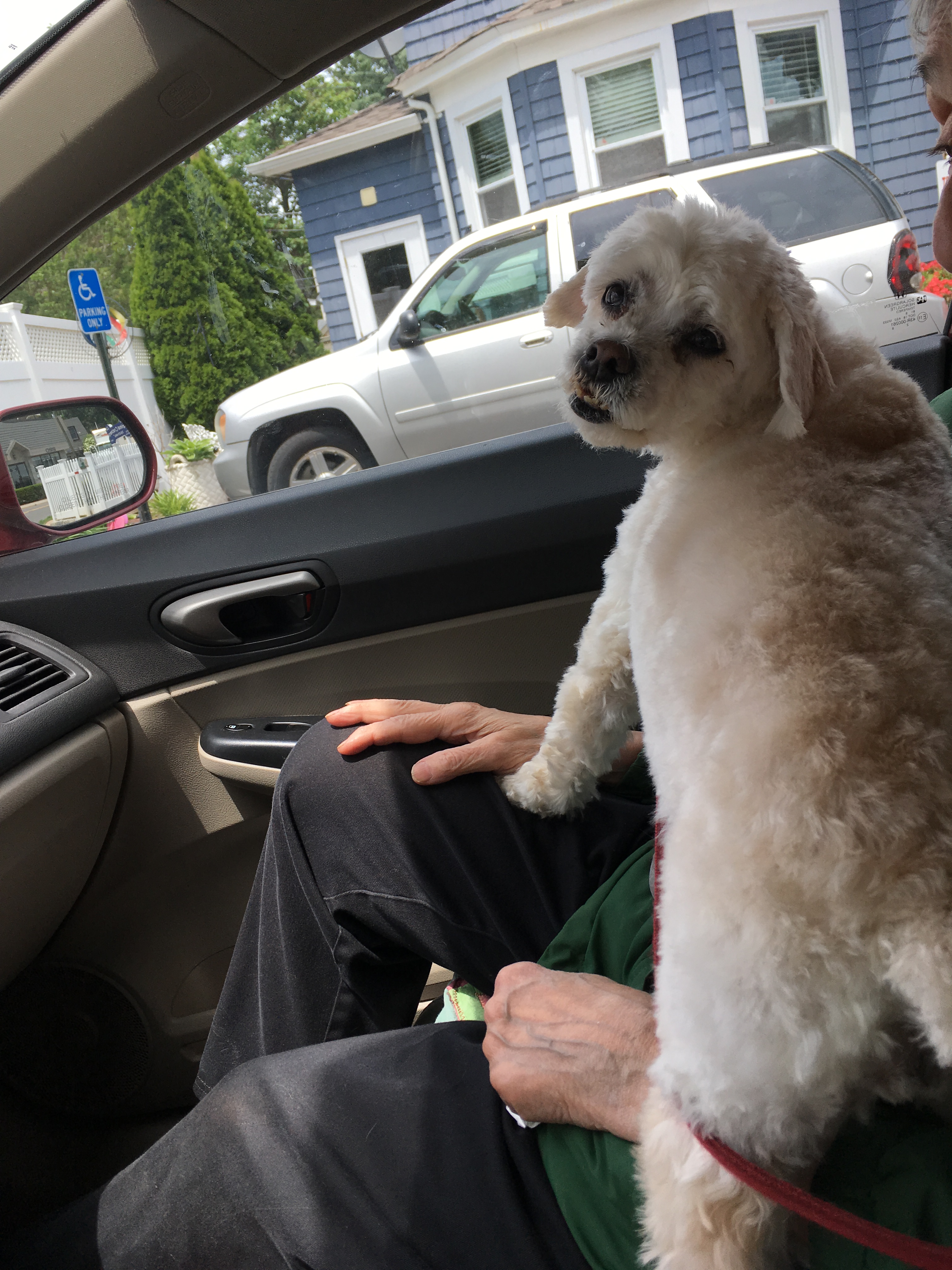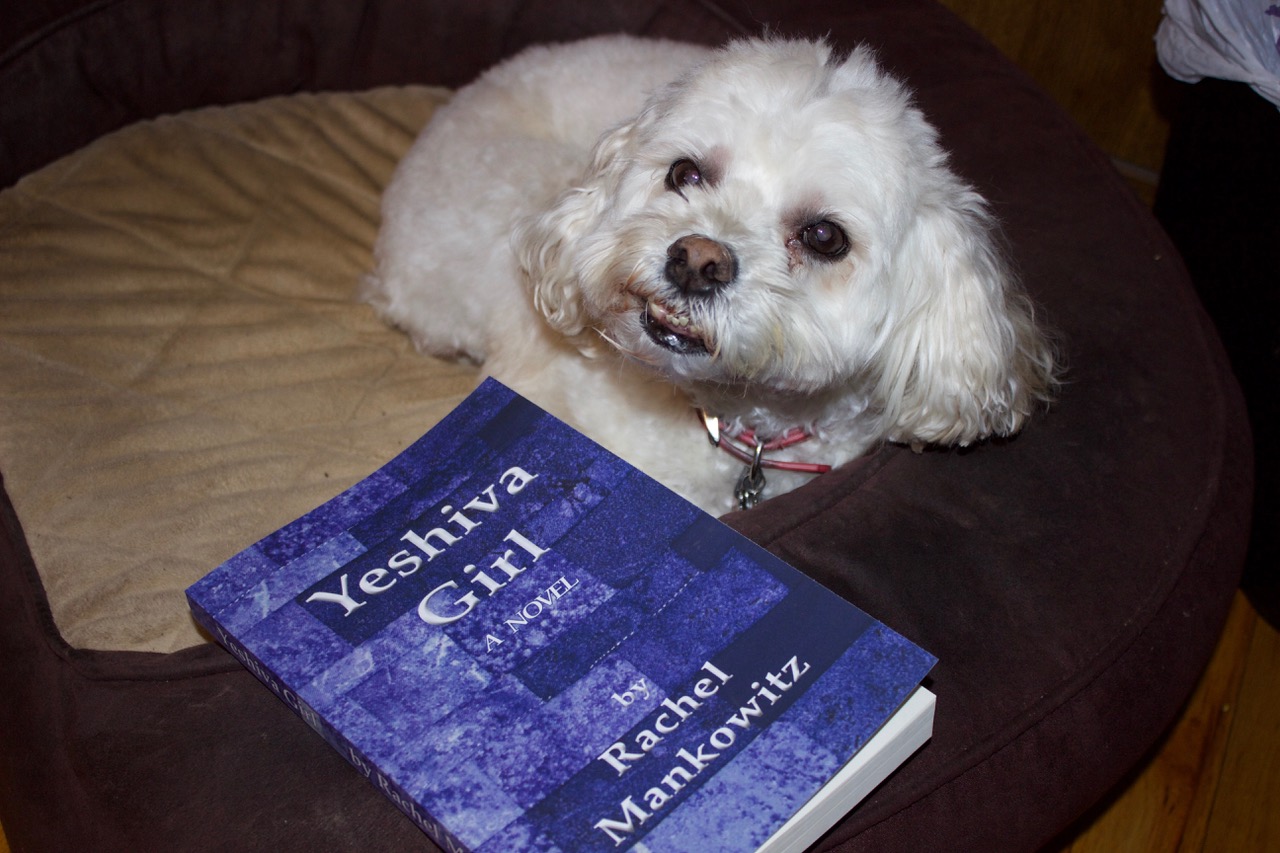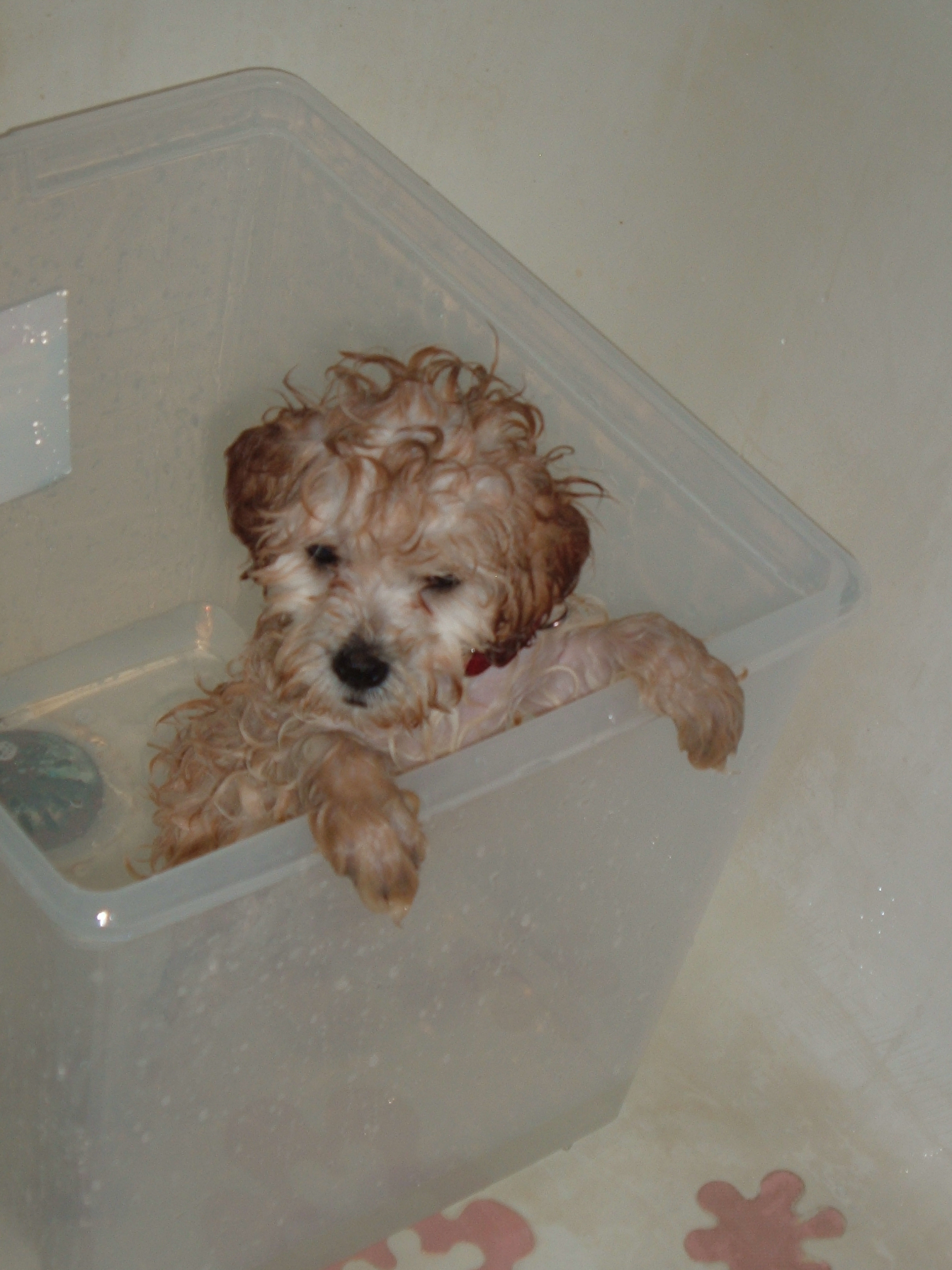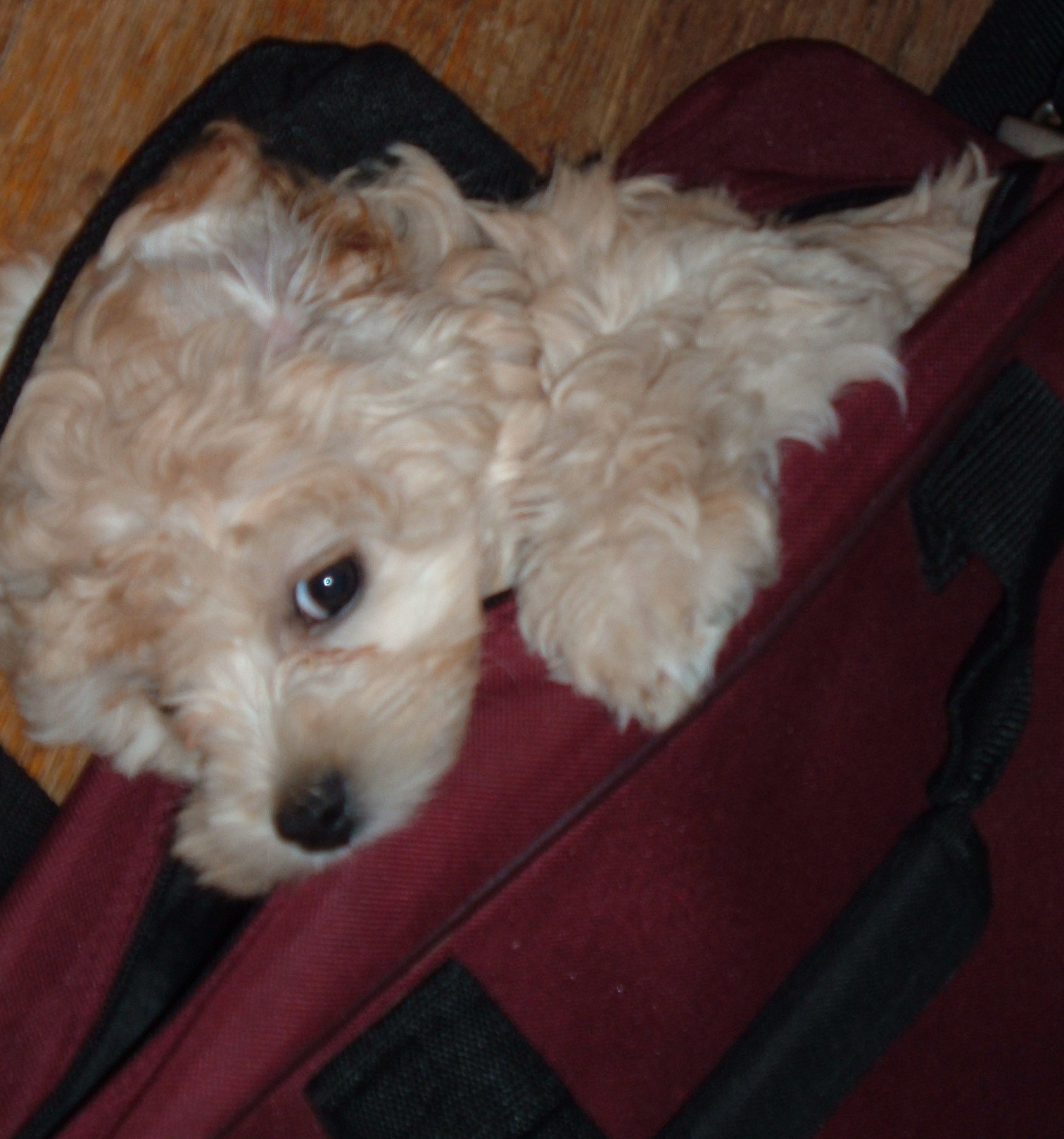My ideal next dog would be a Maltipoo (Maltese/Poodle mix), ten pounds or less (small enough for Mom to be able to pick him or her up), non-shedding and hypoallergenic (as much as possible), and healthy enough so that I would have him or her for a long time (because having less than five years each with Butterfly and Ellie was heartbreaking). Ideally the next dog would also be a rescue, but I may have to accept that the ideal dog for me will have to come from a home breeder again, like Cricket did, rather than a rescue organization.
My biggest anxiety, dog-wise, is the cost; because I’m not sure I can really afford a dog long term, and all of the vet care and grooming costs involved, on top of the adoption/rescue fees. I still have a lot of medical debt to pay off, and I’m afraid it’s selfish to risk getting another dog without knowing for sure where the money to take care of them is going to come from. And yet, I really need a dog, or two, to make life worth living.
Back when we got Cricket, sixteen and a half years ago, we were still recovering from the death of our Lab/mix, Dina, who had died half a year earlier, at sixteen years and two months old, after a long but difficult life. She’d had false pregnancies for years, and for the first eight years, while we still lived in my father’s house, he refused to let us get her spayed to relieve her suffering. Either as a result of that, or just along with that, Dina had a lot of fears: separation anxiety that made it very hard for me to leave her home alone; fear of children and other moving objects; and fear of bridges and water and all kinds of sounds and smells. I learned an enormous amount from Dina about how to care for my own limitations with more creativity and compassion, because she couldn’t just “get over it” the way people always insisted I should be able to do, but by the end I was exhausted, and I just wanted an easy dog, a small dog, a happy and healthy dog.
I researched breeds and temperaments and sizes and on and on and decided on a Cockapoo, and we found a home breeder in New Jersey that we liked and went to see the puppies in person, and Cricket chose us. She turned out to be cheaper than we’d expected because she had an underbite, which, the breeder told us, meant that Cricket couldn’t be a show dog. Fine with me.
Except, I discovered quickly that I am a terrible groomer. I spent two years trying to teach myself how to manage her and her hair, but in the meantime, and then forever after, she needed regular professional grooming, an expense I’d never thought of before. And when Cricket was a year old she started to limp, and we discovered that she needed knee surgery, first on one knee and a year later on the other one.
But most importantly, Cricket, who was supposed to be our easy dog, ended up having all kinds of behavioral problems, most likely as a result of neurological problems caused by being the runt of her litter. She spent sixteen years teaching me how to love someone who is difficult, someone who is capable of biting the ones she loves over and over again, and someone who needs to be protected from her own impulses most of the time. She taught me that not all of the people who need your help will inspire your sympathy, or even be grateful for your help. And she reminded me that being smart (and Cricket was very very smart) does not protect you from struggling with even the smallest challenges in life. She also taught me that it is possible to be so cute that even the people who know you best will keep forgetting what a jerk you are.
Maybe the most important lesson I’ve learned from all of the dogs I’ve had is that no matter what you think you are getting when you adopt a dog, each dog who comes into your life will teach you something you didn’t expect. You will be challenged and you will grow, whether you like it or not.
Butterfly, an eight-year-old breeding momma rescued from a puppy mill, taught me a kind of love I didn’t know I could feel. Even from the first time I saw her, dirty from the newspapers lining her cage in the shelter, and missing teeth, I refused to let her go, even though we’d gone to the shelter that day on a whim, with no intention of bringing a dog home right away. I learned from Butterfly that I can take care of someone else, very well, and with an enormous amount of patience, when necessary. And I credit Cricket, who was six years old by the time we adopted Butterfly, with making it possible for me to believe that I might be able to manage the challenges Butterfly presented, healthwise.
Then, Ellie came to us by luck, when Cricket’s groomer called us to say that she’d rescued a dog she couldn’t keep, because her previous rescue and the new one were not getting along. Ellie was four or five years old and had just been spayed, after spending years as a breeding momma at a home-ish breeder. I didn’t have the immediate “love at first sight” reaction to Ellie that I’d had with the other dogs, maybe because I didn’t choose her myself, but Ellie taught me that love can grow and become just as deep and strong, even without that coup de foudre at the beginning. I’m still too close to the loss of Ellie to take a full accounting of all of the things she taught me, but the realization that my heart can stretch and stretch, to sizes I could never have imagined ahead of time, is one of her gifts to me. And I also learned, in losing her, that a stretched out heart needs a lot of time to heal.
I have no idea what I will learn from my next dog, or how he or she will challenge me. I guess, first, I will need to learn how to feel like I deserve the next dog at all, and to believe that I will be able to live up to the challenges that come along with all of the love and joy and comfort. I hope that this part of the work doesn’t take too long, because life is pretty lonely without a dog.
If you haven’t had a chance yet, please check out my Young Adult novel, Yeshiva Girl, on Amazon. And if you feel called to write a review of the book, on Amazon, or anywhere else, I’d be honored.
Yeshiva Girl is about a Jewish teenager on Long Island, named Isabel, though her father calls her Jezebel. Her father has been accused of inappropriate sexual behavior with one of his students, which he denies, but Izzy implicitly believes it’s true. As a result of his problems, her father sends her to a co-ed Orthodox yeshiva for tenth grade, out of the blue, and Izzy and her mother can’t figure out how to prevent it. At Yeshiva, though, Izzy finds that religious people are much more complicated than she had expected. Some, like her father, may use religion as a place to hide, but others search for and find comfort, and community, and even enlightenment. The question is, what will Izzy find?
